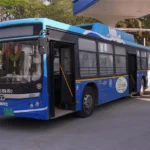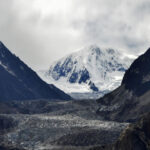
As air pollution in Delhi and the National Capital Region (NCR) reaches ‘severe’ levels, authorities have activated Stage III of the Graded Response Action Plan (GRAP) to curb further environmental damage. Here’s a quick guide on what’s restricted and what’s allowed under the GRAP 3 guidelines to reduce pollution in Delhi-NCR.
Schools: Will They Remain Open?
Currently, in-person classes are still running, but the state government may soon decide to shift classes online, especially for students up to Class V. Authorities will monitor air quality and announce any changes as necessary.
What’s Banned Under GRAP 3?
The Stage III guidelines target dust and vehicle emissions, restricting a variety of activities:
- Construction and Demolition:
- Most construction and demolition activities are banned, including earthwork, boring, piling, masonry, painting, major welding, and tile cutting.
- Exemptions apply to essential projects like hospitals, national security infrastructure, and critical public infrastructure (e.g., highways, water supply projects).
- Vehicle Restrictions:
- Entry of non-essential inter-state buses into Delhi is restricted. Only electric, CNG, and BS-VI diesel buses are permitted.
- BS-III petrol and BS-IV diesel vehicles are banned in Delhi and nearby districts like Gurugram, Faridabad, Ghaziabad, and Gautam Budh Nagar.
- Dust Control Measures:
- Activities that generate dust, like moving construction materials on unpaved roads or transferring demolition waste, are strictly prohibited.
- Mechanized road sweeping will be intensified across the NCR.
What’s Allowed?
- Essential construction projects (e.g., hospitals and national security-related infrastructure) continue with restrictions.
- Public infrastructure work, including road repairs, will proceed under guidelines to minimize dust.
Conclusion
The Stage III restrictions under GRAP are aimed at controlling dust, limiting vehicular pollution, and minimizing activities that degrade air quality. As the state government continues monitoring air quality, further measures may be implemented if pollution levels persist at the severe level.




































Leave a Reply